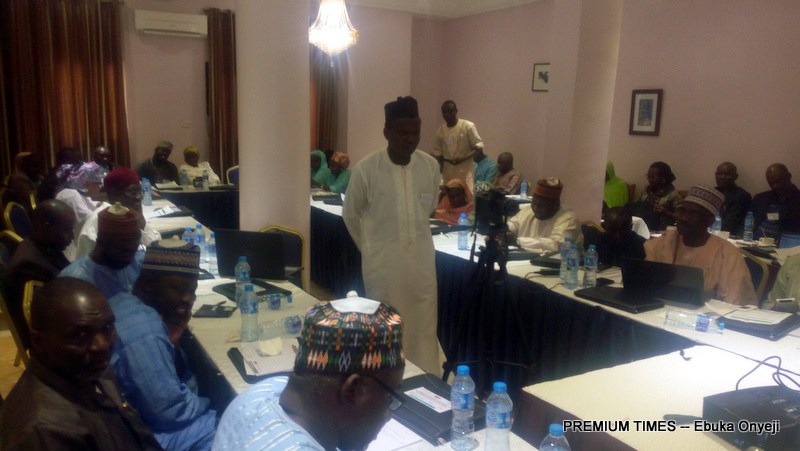
A consultant psychiatrist, Ibrahim Wakama, has revealed that the template for the treatment of people in the north-east experiencing psychological trauma as a result of the Boko Haram insurgency was adopted from Burundi and Rwanda.
Mr. Wakama, Head of Clinical Services of the Federal Neuro-psychiatric Hospital, Maiduguri, disclosed this to PREMIUM TIMES on Saturday in Abuja during a workshop to build psycho-social support for girl victims of trauma in the north-east.
The workshop was organised by a social advocacy group active in the zone, Development Research and Projects Centre, DRPC.
“At the beginning, there was nothing on ground for people with psycho trauma. It was a new thing and a new experience. No material was on ground. The first thing we did was to look at what other countries like Burundi and Rwanda who had issues of humanitarian crisis did”, he said.
“We looked at the measures they have adopted. We then adopted some of the materials they used, although some of the materials are not culturally sensitive, considering our peculiarities, so we translated them and made them culturally sensitive.
“We also trained our local staff to serve as psycho social support councillors. We established a referral pattern between the IDP camps and the hospitals. That’s how we were able to initiate our plan and got established”, Mr. Wakama said.
The consultant explained that out of the 1654 referral cases they received at the beginning, about 65 per cent of those that had psycho issues were girls.
“And this is just within the psycho facilities and the IDP camps; we are not talking about the host communities.
“I think the level of psycho trauma among women will be astronomically high compared to what we think of,” he said.
Mr. Wakama said at the onset of the Boko Haram insurgency, there were no provisions in place for victims of trauma to cope with life.
He said doctors at the Federal Neuro-psychiatric Hospital were pooling money together to support the victims.
He said the victims support fund put together by the Nigerian government has not made any cash donation to the facility, despite its crucial role in helping victims of the war to recover.
Mr. Wakama said some agencies that had been helping some of the victims withdraw from treatment because they could no longer afford to provide funding.
He said only 20 per cent of Boko Haram victims are in IDP camps, the rest are living in different settlements across the state and with little care.
“The major problem we have are those in the host communities and those dispersed by insurgency who we can’t reach out to.”
During the workshop, experts working in the area of mental health also called on government and other stakeholders to ensure coordination in their intervention for girls experiencing trauma in the North-east.
Mustapha Gudaji, a consultant psychiatrist with the Aminu Kano Teaching Hospital and a senior lecturer at Bayero University, Kano said there was need for government to bring together all relevant stakeholders and have a comprehensive trauma focused care.
Faltama Shettima, a consultant psychiatrist at the Federal Neuro-psychiatrist Hospital, Maiduguri said coordinated intervention was key to building resilience and coping strategies for girls in school, internally displaced persons’ camps, and in health facilities who present symptoms of trauma in the north-east.
END

Be the first to comment